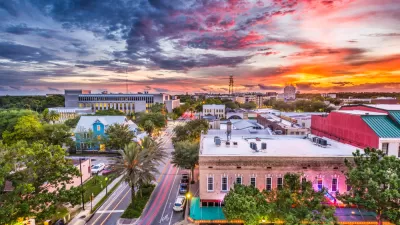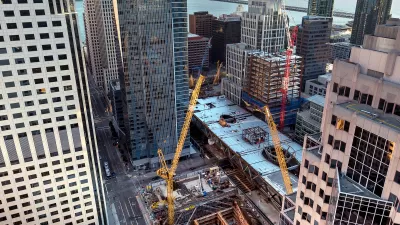Across the D.C. metro area, the supply of market-affordable apartments has dropped dramatically over the past decade as the region's economy has boomed. Nonprofit groups and local governments are working to improve affordability.
"Affordable housing is a chronic problem in the Washington area, where nearly a third of homes sold last year cost $500,000 or more, according to data from Rockville-based multiple listing service MRIS," writes Laura Barnhardt Cech.
"Renting is also a problem. In order to afford a District home renting for $1,412 a month, while meeting the affordability standard of 30 percent of income, a person needs to earn $56,480 a year, according to National Low Income Housing Coalition. A minimum-wage worker would have to work 132 hours a week to meet that standard."
“The need for affordable housing is so great,” says Nina Janopaul, president of the Arlington Partnership for Affordable Housing and president of the Housing Association of Nonprofit Developers. “We’re so overwhelmed.”
Cech examines what nonprofit groups, faith-based organizations, and local governments are doing to "create or preserve more low- and moderately priced housing across the region."
FULL STORY: Groups fight to overcome lack of affordable housing in D.C. region

Alabama: Trump Terminates Settlements for Black Communities Harmed By Raw Sewage
Trump deemed the landmark civil rights agreement “illegal DEI and environmental justice policy.”

Planetizen Federal Action Tracker
A weekly monitor of how Trump’s orders and actions are impacting planners and planning in America.

The 120 Year Old Tiny Home Villages That Sheltered San Francisco’s Earthquake Refugees
More than a century ago, San Francisco mobilized to house thousands of residents displaced by the 1906 earthquake. Could their strategy offer a model for the present?

In Both Crashes and Crime, Public Transportation is Far Safer than Driving
Contrary to popular assumptions, public transportation has far lower crash and crime rates than automobile travel. For safer communities, improve and encourage transit travel.

Report: Zoning Reforms Should Complement Nashville’s Ambitious Transit Plan
Without reform, restrictive zoning codes will limit the impact of the city’s planned transit expansion and could exclude some of the residents who depend on transit the most.

Judge Orders Release of Frozen IRA, IIJA Funding
The decision is a victory for environmental groups who charged that freezing funds for critical infrastructure and disaster response programs caused “real and irreparable harm” to communities.
Urban Design for Planners 1: Software Tools
This six-course series explores essential urban design concepts using open source software and equips planners with the tools they need to participate fully in the urban design process.
Planning for Universal Design
Learn the tools for implementing Universal Design in planning regulations.
Clanton & Associates, Inc.
Jessamine County Fiscal Court
Institute for Housing and Urban Development Studies (IHS)
City of Grandview
Harvard GSD Executive Education
Toledo-Lucas County Plan Commissions
Salt Lake City
NYU Wagner Graduate School of Public Service




























